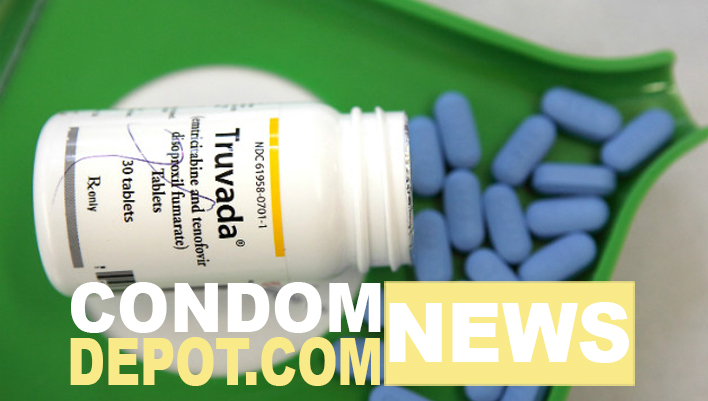Great news out of Australia! Starpharma, a pharmaceutical company from the land down under reports that they plan to market a condom within the next few weeks that comes with its own antiviral gel and lubricant.
The active antiviral in Vivagel is called asodrimer sodium. My research on this compound yielded almost no results, except that it was used in Vivagel. Instead, I found all of the research on the formula was published under the chemical name of the compound: SPL7013.
SPL7013 has undergone rigorous testing over the past couple of years to prove its worth as a antiviral. Over that time, it’s proven effective against 99.9% of viruses, including HIV, HPV (genital warts), and HSV (genital herpes). It also works as an antibacterial, meaning that STDs caused by bacteria, like chlamydia, gonorrhea, and syphilis are also on SPL7013’s hit list.
To be honest, they remind me of contraceptive gels or even contraceptive films. As someone with sensitive skin, who seems to have a negative reaction to everything, I would be nervous that this gel might give me an allergic reaction, like nonoxynol-9 from spermicides or capsaicin. So, I decided to look up the actual test data and find out if there were any problems with irritation.
 Read more about contraceptive films!
Read more about contraceptive films!
The consensus of these tests seems to be about the same: while they work pretty well at getting rid of the viral DNA that cause both HIV and HSV, they still provide a mild irritation. This doesn’t seem like a big problem when preventing a potentially life-threatening disease, but this is where the problem comes in.
When tissue is irritated, it could send white blood cells to the site of irritation to fight off any potential infection from the site of the irritation. This is great– that’s how the body is supposed to fight infection. But if you’ll harken back to your HIV/AIDs prevention education, you may remember that it’s these white blood cells that HIV attacks.

And since HIV attacks your body’s ability to fight disease, this seems like fighting off a wolf by letting it bite you. On the off-hand chance that the condom breaks and anything gets through, all the HIV needs is a little bit of leeway to cause a potentially life-threatening infection.
I’m not trying to be an alarmist. This would understandably be a very rare occurrence, but it’s still a risk, and with the excitement of these condoms coming out, very few places are reporting that very real risk. If you’re interested, you can read more about these studies at the US National Library of Medicine.
Don’t get me wrong: this is a huge step in the right direction, especially for those who have an active viral load while their partners do not. Combining STD killers with STD preventers can only help kill off the spread of the disease in the long run. But let’s not jump the gun: there are clearly problems with putting SPL7013 into a sensitive, bodily orifice. Stay informed and stay safe.

And condoms, when used correctly, already prevent the vast majority of diseases without causing irritation.
And like regular condoms (and any other form of contraception), Vivagel condoms aren’t going to be 100% safe 100% of the time. This is nothing new. You will still need to weigh the risks of intercourse with a partner whose status you don’t know, or who might be positive.
And for all seriodiscordant couples out there, don’t lose hope! There’s still plenty of ways to practice safe sex– including getting frequent testing and taking preventatives like Truvada.
That being said, I am excited for this. I think it’s a move in a positive direction and I hope that we will soon be seeing these condoms and more STD fighting condoms, after thorough testing, on our shelves.
